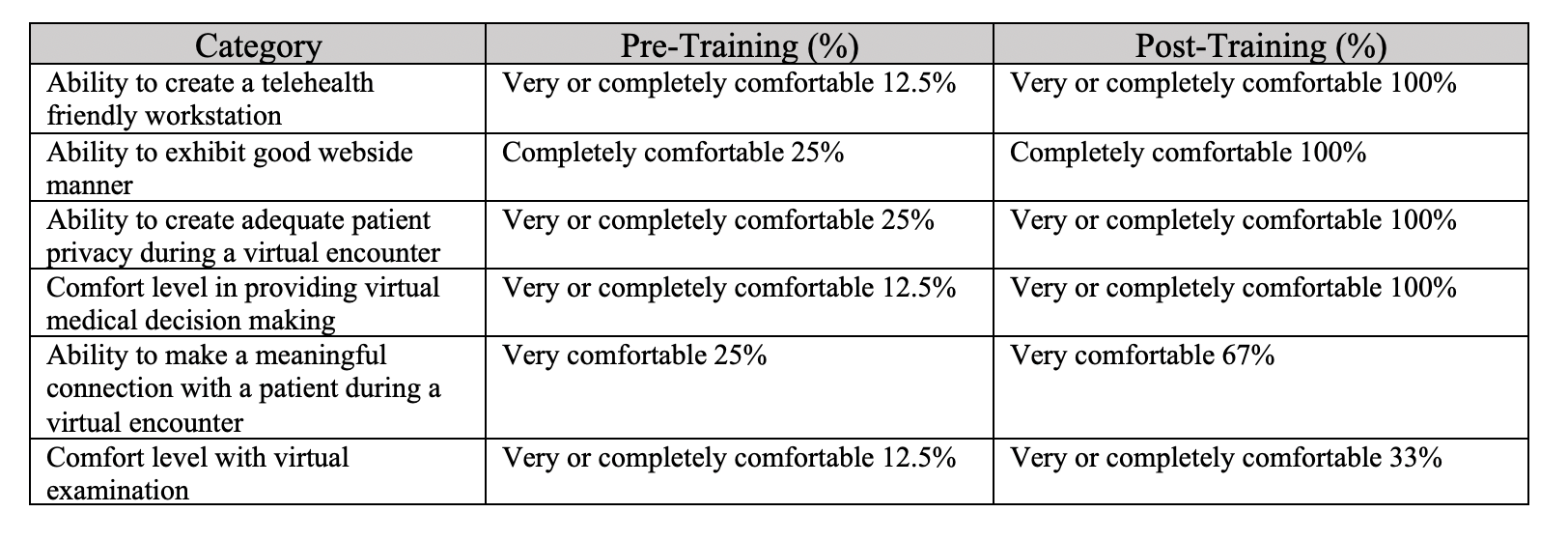Telemedicine/EHR/Medical Informatics
Telemedicine/EHR/Medical Informatics 2
639 - Virtual Education Learning Platform as a Quality Improvement Initiative for Emergency Medicine Treatment Teams
Publication Number: 639.455
- LC
Lia Cruz, DO, FAAP (she/her/hers)
Assistant Professor
Levine Children's Hospital
Charlotte, North Carolina, United States
Presenting Author(s)
Background:
Traditional telemedicine teaching has largely consisted of experts providing educational courses to teach critical telemedicine competencies at a premium. Skill acquisition degrades without daily use and leads to inconsistent results and failed implementation. We aim to pilot a tool that provides telemedicine skill acquisition, skill retention, and real-time re-education capabilities. Critical concepts such as reinforcing patient trust in a virtual space and navigating the virtual medical decision-making process are among a few of the skillsets needed to create successful virtual encounters. It is integrally important that providers learn to implement these skillsets in a professional, safe, and evidence-based manner to earn the trust of our patients in an unfamiliar care environment.
Objective:
This was an implementation pilot study to examine the feasibility of an innovative learning platform for testing learning skill acquisition and retention and real-time re-education capabilities.
Design/Methods:
An asynchronous training program in the form of a progressive web app (PWA) was developed from existing evidence-based principles of telemedicine to support use cases in pre-hospital medicine, peer to peer consultation, and direct-to-consumer telemedicine consultation. A stakeholder panel reviewed the tool's content and objectives and provided feedback in four cycles of revisions to develop a product in alignment with a faculty needs assessment. In the pilot phase, the primary outcome was accessibility of the platform, cost, and ease of use measured by learning completion rates during a finite testing interval from September 15th to December 15th 2022.
Results:
Fifty-one faculty enrolled in the program. 7(14%) had experience developing telemedicine programs and 17(33%) had experience providing consultations. Participant reported experience levels varied as shown in Table 1. All faculty accessed the platform during the implementation pilot. 83% of Pediatric Emergency Medicine (EM) faculty utilized the training platform and 30% of general EM faculty utilized the platform. All faculty who accessed the training were able to complete the modules without technical assistance. The web app managers were able to change content in real time without impacting faculty use. The platform costs $110 monthly with the ability to add several hundred additional users as the program grows.
Conclusion(s):
A progressive web app (PWA) appears to provide an inexpensive, accessible and dynamic option for training faculty in telemedicine competencies including dynamic changes and real time re-education. 

.png)
